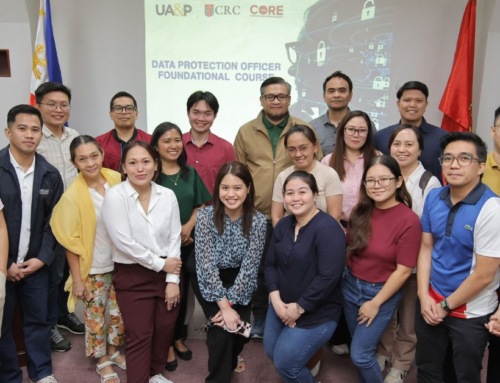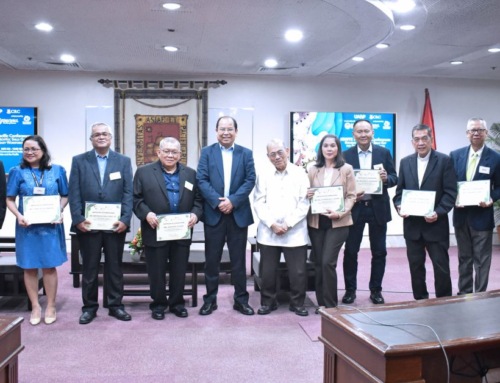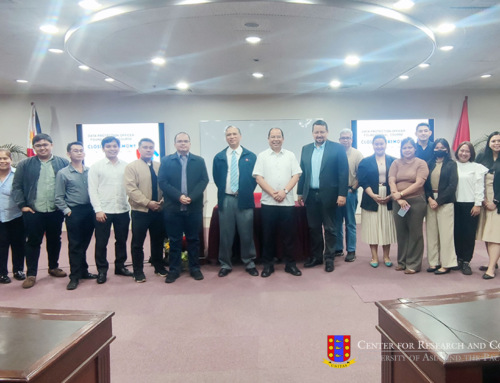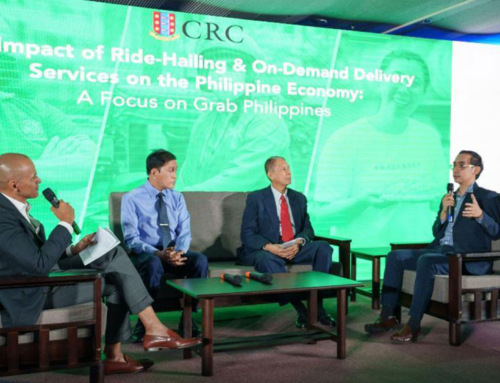PASIG CITY — In an age of rapid innovation, investments Philippine agribusiness represent a unique opportunity to hit two big birds with one stone: profit for enterprising new businesses, and the chance to help 650 million people in Southeast Asia achieve food security.
“Making better use of our 14 million hectares”
Eminent economist Bernardo Villegas highlighted this when he welcomed participants to the 2021 CRC International Food and Agribusiness Investor Roadshow last March 25, 2021.
“We would like to present to potential investors the opportunities for helping the Philippines finally address the challenge of productivity in food and agribusiness,” he said, “not as some kind of a charitable move towards our country, but as profitable opportunities. And that is why we would like to invite you to take a look at what can be done in this country in addressing food security in the whole indo-pacific region through making better use of our 14 million hectares of agricultural land.”

Future articles on the CRC website and CRC’s various social media accounts will discuss the roadshow’s talks in greater detail, but this article outlines the many insights the speakers shared at the event, which highlights one of several areas of focused expertise among CRC’s consultants. (the other major sectors being: energy, transportation and logistics, information technology and analytics, and infrastructure and industry including construction, real estate, and industrial & economic zones; and other sectors being health and wellness; and employee training and education.)
A macroeconomic view of, and promising sectors in Philippine agribusiness
At the event, agribusiness advocate, columnist, educator, author and UA&P Center for Food and Agribusiness the Executive Director Dr. Rolando T. Dy provided a macroeconomic view of Philippine agribusiness and also discussed promising small-to-medium sized investments in the sector.
He began by providing a breakdown of the previous year’s output of Philippine Agriculture by subsectors and commodities. He highlighted the importance of food processing, which is as big a part of Ph GDP as agricultural production per se. He then identified potential investments in import substitution (focusing on rice and coffee) and export commodities (focusing on cavendish banana, pineapple and pineapple products, and coconut). He concluded by identifying some of the key drivers of agribusiness in the Philippines, including demand, and farmers’ access to technical assistance and to banking or financial support.
“At the intersection of tech agriculture and impact”
Another speaker at the Roadshow was Mr. JT Solis, co-founder and CEO of MAYANI – a tech startup which was launched in May 2019 and has quickly become the Philippines’ fastest growing farm-to-table technology platform.
Recounting MAYANI’s experiences “at the intersection of tech agriculture and impact,” Mr. Solis talked about the problems experienced by the Philippines’ small farm owners, who have difficulty selling their products and being able to sell it at a fair price. He then associated this with three issues characterizing the Philippine agricultural supply chain: the lack of fair and broad market access for most of the country’s smallholder farmers; high transaction costs and wastage; and the systemic unreliability of the supply chain. He then explained that they decided to put up a technology platform because by doing so, they could help farmers have fairer and more extensive market access; optimize pricing and minimize wastage; and also enabling a supply chain that is better insulated from disruptions and is thus generally more dependable.
Noting that smallholder farmers fill four out of five plates among the 650 million people in Southeast Asia, he noted that while technology – and Mayani specifically – had made significant strides in help revolutionize the Philippines’ agricultural supply chain, there’s still a lot of work to be done.
A continually evolving landscape
Philippine Agriculture is a continually evolving landscape, always presenting new opportunities. CRC can help you find the inside scoop that will give you an edge in the Philippine Market, whether that means evaluating the demand and price points for agricultural products and services, determining the feasibility of a new agribusiness venture, or just or even just finding the right local partners to do business with.
Let the Center for Research and Communication be your research and consultancy link to Philippine business opportunities. Get in touch with us via our LinkedIn of Facebook accounts, or email us at [email protected]. • | RE de LEon | CRC ||
———————————————————–
The Center for Research Communication is the research and consultancy link to Philippine business opportunities, uniquely poised to help you with technical and financing evaluation, demand evaluation, partnership development, project impact evaluation, and team upskilling and learning. To find out more about CRC, send an email to [email protected], or follow us on LinkedIN at linkedin.com/company/centerforresearchandcommunication . You can also find us on Facebook at facebook.com/centerforresearchandcommunication
#philippineagribusiness #PhilippineEconomy #urbanfarming #businessopportunities






